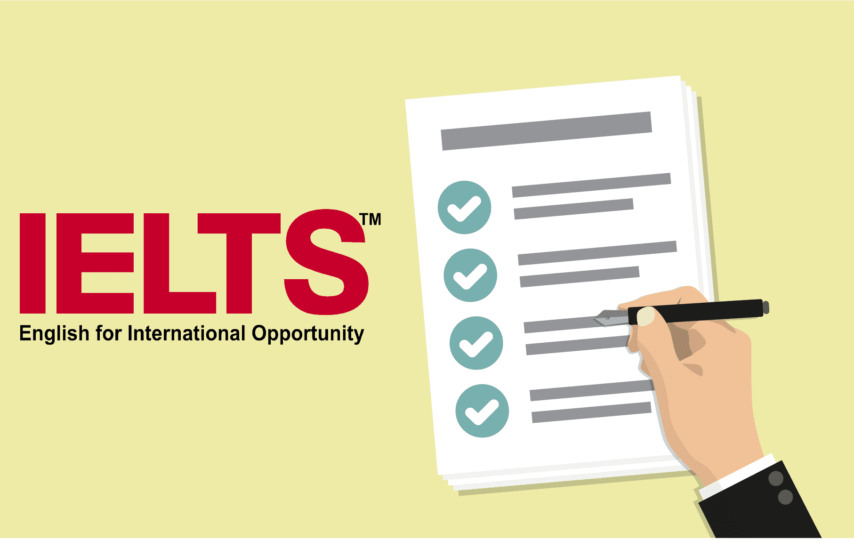The UK is known as the educational hub among young minds. Every year, thousands of students worldwide pursue higher education at UK universities.
Hence, naturally, the competition regarding IELTS for the UK is very high. So, if you are in need of any assistance with UKVI IELTS 2022, visit LeapScholar.
Why is IELTS Required?
- Required for admissions to international universities
Appearing for IELTS is mandatory if you aspire for higher education in foreign universities, especially in the UK. It checks your English language proficiency both in spoken and written mediums. Most international universities require a minimum score of 6-6.5.
- It gives worldwide recognition
Since this exam is one of the most popular English language tests, it is validated by almost every international organisation. So if you are planning to work in the UK in an MNC, education field or the government, a good IELTS score can help you in many aspects.
- Mandatory for acquiring a student visa
While obtaining a student visa, they require you to present English language proficiency test scores. And IELTS is one of the most common language tests. So even if you are not applying for any job or degree in the UK, having an IELTS score opens up numerous opportunities.
What Are The Different Types Of IELTS for the UK?
There are two major types of IELTS; Academic and General Training. These two types are then subdivided into IELTS UKVI (Academic), IELTS UKVI (General Training), IELTS Life Skills A1, IELTS Life Skills A2, and IELTS Life Skills B1.
Here is a table showing the purpose of the different IELTS exams.
| IELTS Test Type | Purpose |
| IELTS UKVI (Academic) | For UG and PG levels and seeking professional registration in the UK |
| IELTS UKVI for (General Training) | For those who want to migrate to the UK or study or train lower degree levels |
| IELTS Life Skills A1 | For those who need to show the IELTS score for visa requirements and immigration for Sportsperson, Overseas Business Representatives, Family visas |
| IELTS Life Skills A2 | For those who need to prove their English language proficiency for immigration and UK visas and for an extension to family visas |
| IELTS Life Skills B1 | Applicable for those who require to prove their English language proficiency for immigration and UK visas and for citizenship and settlement visas. |
How to Apply For IELTS?
There are more than 1600 IELTS test centres in over 140 countries. So you begin with finding the one nearest to your location.
- Log in to their website.
- Complete the online registration process.
- Select the date of the exam and the city where you want to appear for the test.
- Complete the rest of the process
- Pay the registration fees.
If you choose the offline method, do the following.
- Download the application form.
- Fill in all the required sections.
- Submit it to the nearest test centre.
- Provide a copy of your identity proof.
After the application is processed, you will receive a confirmation message or email about the date and time from the centre.
IELTS Syllabus
The IELTS Academic and General Training syllabus is the same for the Listening and Speaking sections. And for the other two sections, it changes slightly.
| IELTS Test Sections | Description | Time |
| Listening | 4 sections – 40 items | 30 minutes |
| Reading | 3 sections – 40 items | 60 minutes |
| Writing | Two tasks | 60 minutes |
| Speaking | Three-part, one-to-one conversation | 10-15 minutes |
How to prepare for IELTS?
If you wish to appear for IELTS for the UK, it is advisable to start now. Here are some of the popular tips you can use to prepare for this test.
- Choose your type
Before you begin your preparations, choose what type of IELTS is required for you. After choosing the type, check its syllabus and other topic-specific details.
- Know the test format
Whether you are preparing for the listening, reading, writing or speaking section, you need to know its format clearly. Once you understand the layout of the questions, you will gain confidence and know what to expect.
- Check the marking scheme
In IELTS, candidates are marked on fluency, grammar usage, and spoken and written skills. The marking scheme is divided into 6-9 bands.
- Band 6 stands for “competent students”.
- Band 7 stands for “good users”.
- Band 8 stands for “very good users”.
- Band 9 stands for “expert users”.
- Keep practising
You can easily get study materials online, which will help you understand the type of questions and question patterns. These materials generally come with sample test papers which are very helpful if practised sincerely.
Additional tips
- Prepare a POA
- Read more to enhance your vocabulary
- Improve your grammar
- Time yourself
- Set practical and realistic goals
If your dream is to study or work in the UK, IELTS for the UK is the key to your dreams. So without any further delay, start preparing!













